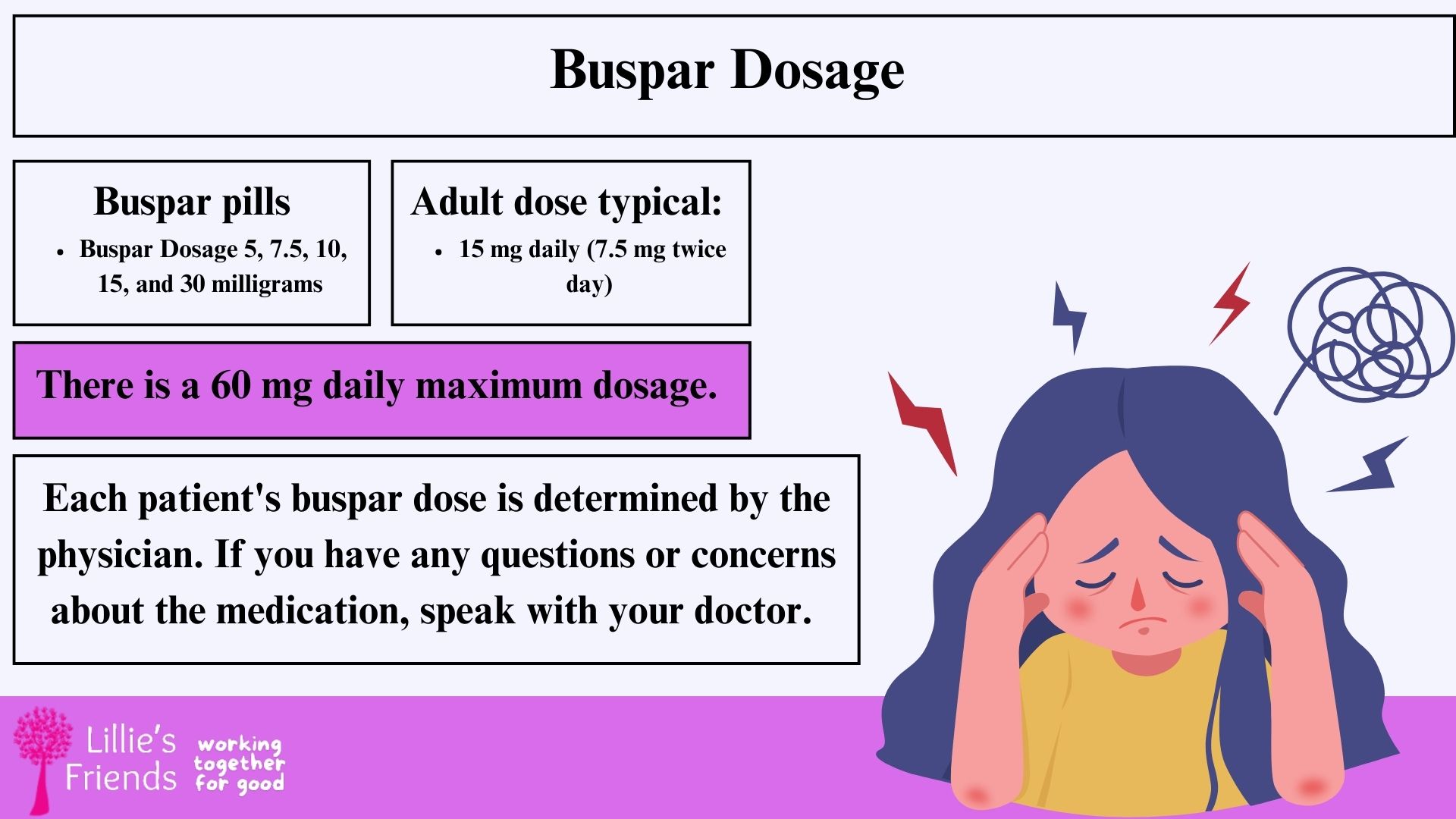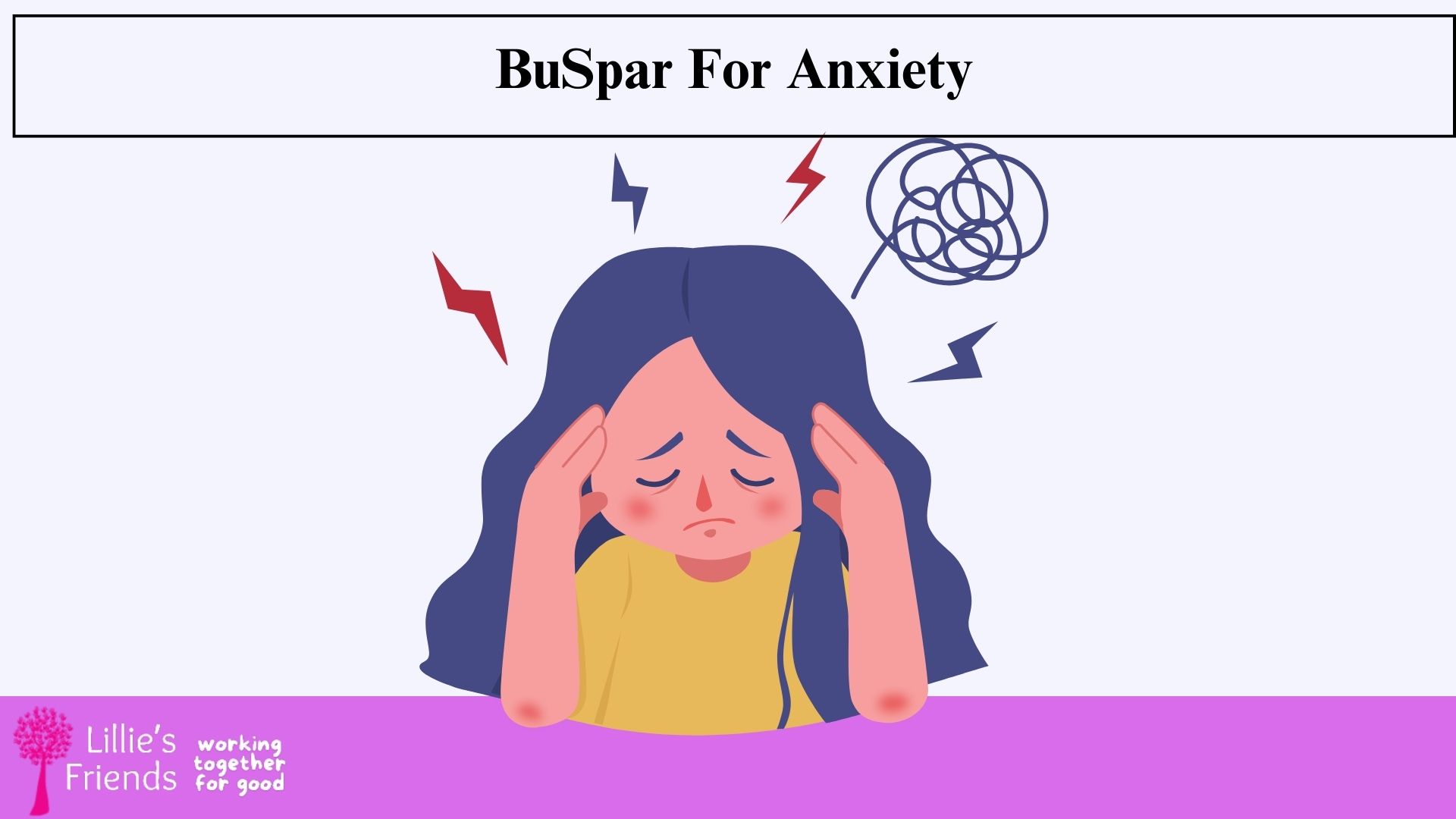Medical Disclaimer
The medicines listed on this website are only there to give you knowledge. Just because they are on the list doesn’t mean that anyone will be given them; in the end, treatment decisions are up to the healthcare workers. The medicines on this list are not all of them. Doctors may recommend other drugs, even ones that don’t contain stimulants, depending on the patient’s specific health needs and circumstances. Read more
The Food and Drug Administration (FDA)-approved anti-anxiety drug buspirone is effective in treating generalized anxiety disorder (GAD). The name-brand BuSpar ↗ has been phased out, although buspirone, the medication’s generic equivalent, is still available.
Both the commercial name BuSpar and its generic name, buspirone, are still in use. You can use it alone or in combination with other anxiety therapies such as psychotherapy. We can also recommend BuSpar if previous anxiety medications were ineffective or had an excessive number of unfavorable side effects.
When it comes to BuSpar for anxiety, there is a lot more to learn. Learn more about the medication’s uses, dosage, and adverse effects in the following sections.
What is the purpose of buspirone?
Buspirone reduces anxiety symptoms. However, buspirone typically does not treat moderate anxiety or tension that arises from everyday stress. Buspirone is most often used to treat generalized anxiety disorder (GAD). On the other hand, it is less helpful for other anxiety-related illnesses ↗ , such as panic disorder, obsessive-compulsive disorder (OCD), and social phobia, and is sometimes used off-label.
Your physician or pharmacist may prescribe this drug for other uses. For instance, for symptoms of alcohol withdrawal, depression, sleeplessness, panic attacks, itching, seizures, nausea, or vomiting. One study ↗ found that patients using buspirone for anxiety saw a 12.4-point reduction in their Hamilton Rating Scale for Anxiety when they also had moderate depressive symptoms.
How Does Anxiety-Related Buspirone Work?
Buspirone is a member of the azapirone drug class, which also contains other anxiolytic and antipsychotic drugs. It influences the neurotransmitters dopamine and serotonin in the brain, which increases the activity of serotonin receptors and reduces anxiety.
If other drugs don’t work or have too many side effects, use BuSpar. It takes two to four weeks for BuSpar to start showing clinical benefits. Thus, you will likely need to take this drug for about a month before assessing its efficacy.
Buspar vs Other Anxiety Drugs
In particular, for those with panic disorders, other anti-anxiety medications, such as benzodiazepines, are thought to be the most beneficial for providing temporary respite from anxiety. Compared to benzos or other anti-anxiety medications, BuSpar has the important virtue of not being sedative or addictive. Additionally, BuSpar is a fantastic choice for those who want to reduce stress without falling asleep or who worry about developing a drug dependency.
More than half of BuSpar users report benefits over placebo, and some studies ↗ indicate that buspirone is just as effective as benzodiazepines.
Buspirone Anxiety Dosage
Numerous factors influence the dose that is prescribed for each patient. These include the ailment being managed, the patient’s age, the illness’s severity, the presence of any concomitant conditions, and the way the patient reacts to the first dosage. Your doctor is the best person to determine the right dosage for you.
BuSpar pills are available in five different strengths: 7.5 mg, 10 mg, 15 mg, and 30 mg. The following are typical doses for BuSpar prescriptions.
- Adults: The usual daily dose is 15 milligrams (7.5 mg twice a day). It is possible to take up to 60 mg per day.
- For elderly patients: Because the kidneys and liver may not work as effectively as they once did, the doctor may start by giving the lowest dosage. As a consequence, their body could process drugs more slowly.

Side Effects of BuSpar
BuSpar is generally well tolerated by most individuals, and adverse effects are rare. However, some people may have adverse outcomes. Remember that side effects (such as tiredness or dizziness) may be more noticeable when you first start taking anxiety medications.
An increase in dosage may also result in a heightened level of negative effects. But these symptoms should ultimately go away since your body will eventually adapt to them. Typical unfavorable outcomes include
- lightheadedness
- Anxiety
- emesis
- Anxiety
- Headache
- Rarely, insomnia
Interactions Between Buspirone and Other Drugs
Ensure you are aware of any potential drug interactions before starting a new medication. Some of the most well-known medications that may interact ↗ with BuSpar include the following:
| Inhibitors of monoamine oxidase (MAOIs) | When combined, these medications can dramatically raise serotonin levels, which may lead to serotonin syndrome—a disorder caused by an overabundance of serotonin in the body that may be deadly if ignored. |
| Erythromycin | is a frequently used antibiotic. It may raise the body’s buspirone concentration when taken orally. |
| certain anti-seizure drugs | Drugs that prevent seizures, such as Tegretol and Dilantin, may lower the body’s buspirone levels. Buspirone’s effects could not be as potent as a consequence. |
Note: Not all possible drug interactions are included in this list. It just covers a few of the most common ones. Giving your doctor a comprehensive list of all the medications, vitamins, and supplements you use is a smart idea.
Precautions
If you’ve been taking BuSpar consistently for some time, it’s critical that your physician monitor your development. The following safety precautions must also be considered to ensure the security and effectiveness of long-term drug usage.
- In case you have any allergies, let your doctor know. This product contains inactive ingredients that may cause allergic reactions or other problems.
- Inform your physician if you have a liver or kidney issue. In such a scenario, BuSpar might not be the best option.
- Steer clear of alcohol while using drugs.
- If the benefits of BuSpar during pregnancy exceed the risks to the mother and fetus, then take it with care, as advised by a doctor.
In summary
Anxiety treatment is crucial. It is not only uncomfortable to deal with; it might make you more vulnerable to other illnesses. You may better control your symptoms by using BuSpar for anxiety and worry. It’s advisable to do research, nevertheless. The final decision on whether or not a medication is appropriate for you rests solely with your doctor.











